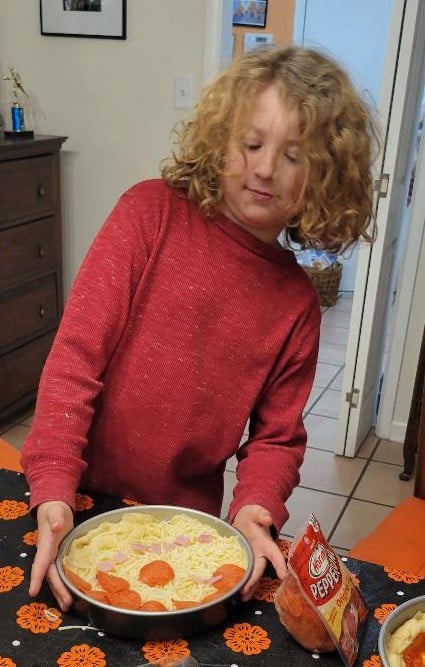The Importance of Routine for Children

Blame it on postpartum hormones, lack of sleep, or the easygoing nature of my firstborn child, but it took me a little over a year to catch on to the fact that my second child desperately needed routine. My oldest daughter was and is one of those people who can fly by the seat of their pants and adapt easily to change. I just assumed it was fine to parent the second child the same haphazard way. It wasn’t. When I instituted a new schedule, my second-born daughter began to thrive. It taught me that not all, but many children need routine. Why is routine so valuable?
Security
People, especially children, tend to do better when they know what is expected. Every minute doesn’t need to be scheduled. It’s also important to have unstructured time to allow for creativity and play time. However, knowing that every day will also include an order such as mealtimes, reading time, bath, and tuck-in at the same time every day can make a child feel more secure.
Reduce anxiety
Having a predictable routine assists in lowering anxiety. Predictability helps a child regulate their emotions and feel more stable and secure. When the schedule is going to be different, it’s essential to discuss the changes ahead of time, if possible. If you typically pick up your child from school every day, but the schedule changes and their grandparent will be picking them up instead, let your child know. Some kids easily adapt to changes, but it can be disturbing for others.
Develop good hygiene habits
The routine of bathing, brushing hair, and brushing and flossing teeth is a habit that, if established at an early age, will most likely last a lifetime. Instilling these routines also helps children with self-discipline. Learning to practice these good habits also increases a child’s independence and confidence.
Improves sleep quality
I’m a big advocate for sleep routines! If I had to choose one routine that made the biggest difference in our lives, it would be the nightly bedtime routine! A nighttime routine eases the transition from active day playtime to slowing the body and mind down to prepare for sleep. This is what our routine looked like, and it worked for us! I gave the kids an opportunity for a nighttime snack, which was almost always cut-up fruit and water. Then there was teeth brushing, a warm bath, and into pajamas. Each child, starting with the youngest, was given 15 minutes of tuck-in time, which included reading, discussing their day, singing their special song, and reciting prayers.
Once I began this nighttime routine, our bedtimes went from something I dreaded to something I enjoyed. It gave each child an opportunity for one-on-one time with me and allowed them to calm down and prepare their bodies for sleep. The time they went to bed changed as they got older, but we stuck with this routine throughout their childhood.
Family Connection
Routines help strengthen family bonds. Having meals together creates a time and emotional space to discuss what’s going on in everyone’s lives. Kids need to know their parents will be available at certain times, such as breakfast or dinner, to hear what they are feeling or doing. Effective communication is crucial for maintaining a sense of connection with other family members. Traditions are also part of the family bond. The traditions that immediately come to mind involve holidays, but the small rituals are also part of the family thread of connection. Maybe Dad cooks pancakes every Sunday morning, or the entire family goes on an evening walk. These routines are an integral part of what makes us a family.
For some adults, routines and schedules come naturally, but for others, it’s more of a challenge. Even the best planned routines sometimes have hiccups, so some mental flexibility is essential. Trust your instincts. You know if your child would benefit from a more predictable routine or if they’re fine just going with the flow. It worked magic for my family.




 Welcome to Grand Life, the TulsaKids blog that explores the wonderful adventures of grandparenting! Join me and my grandchildren as we explore interesting activities and visit family friendly sites in Tulsa. This blog shares the joys and challenges of grandparenting as well as the various roles grandparents play in their grandchildren’s lives.
Welcome to Grand Life, the TulsaKids blog that explores the wonderful adventures of grandparenting! Join me and my grandchildren as we explore interesting activities and visit family friendly sites in Tulsa. This blog shares the joys and challenges of grandparenting as well as the various roles grandparents play in their grandchildren’s lives.








